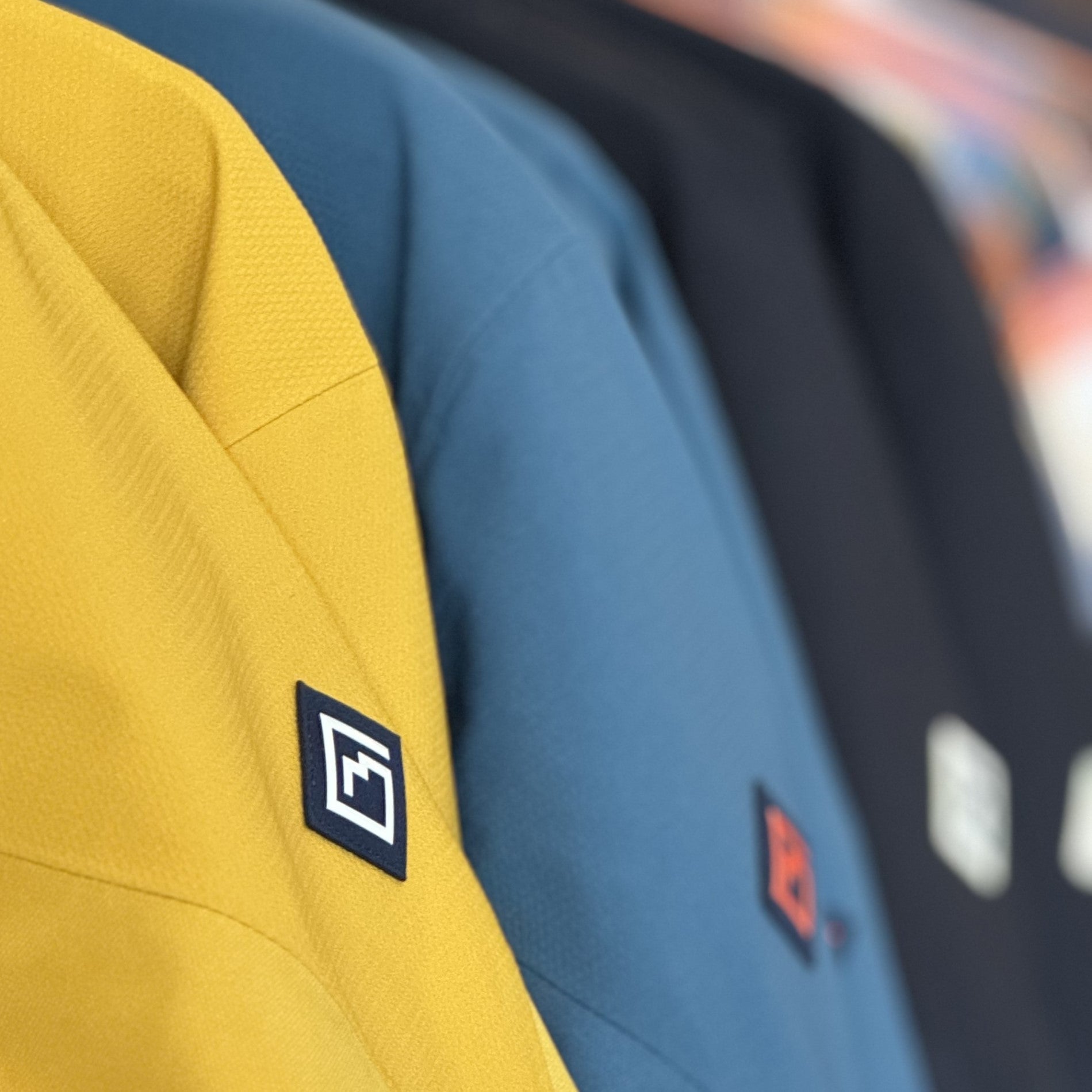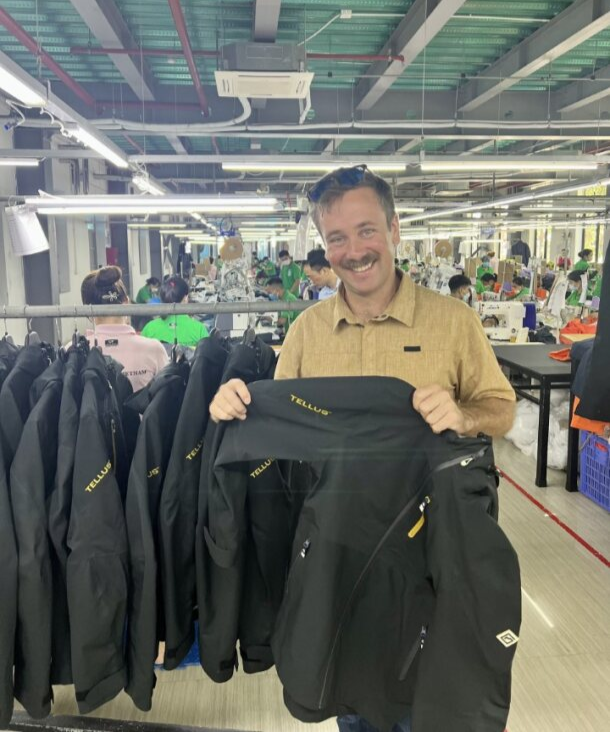What Are Sustainable Materials for Clothing

What are sustainable materials for clothing?
We define sustainable clothing materials as recycled textiles and fabrics produced using environmentally friendly and socially responsible practices. Recycled textiles are made from pre-existing materials, such as discarded clothing or plastic bottles, which are processed and transformed into new textile products. Sustainable textiles are derived from renewable resources or cultivated using methods that minimize environmental impact.
Tellus strives to be the most environmentally conscious company in the outdoor apparel industry. We make this happen by producing high-quality products using recycled, sustainable, and organic materials and giving back 100% of net profits to environmental initiatives that combat climate change.
What’s the importance of sustainable fashion?
When it comes to sustainable fibers, recycled fibers are the gold standard, natural or synthetic. It takes far less waste to produce products made from recycled materials than virgin materials, meaning less landfill waste, less energy consumption and less environmental impact.
Significant impacts include:
- Greenhouse gas reduction
- Safer working conditions for farmers and manufacturers
- Reducing waste and diverting from landfills
- Conserving water and energy
- Reducing or eliminating pollutants
- Conserving resources
- Protecting water systems and surrounding communities

Recycled polyester clothing
Traditional polyester is derived from petroleum — the same material used to make water bottles. While plastic bottles can be recycled, polyester textiles cannot, so they accumulate in landfills, which take centuries to decompose. Recycled polyester clothing is made from repurposed plastic bottles, reducing landfill waste and lessening our dependence on petroleum. Recycled polyester (rPET) matches virgin polyester's quality while using only 59% of the energy needed for production, lowering our environmental impact and resource extraction.
Sustainable alternatives in clothing
“Statistics show that sustainably made products enjoy an increased share of the market and a far higher growth rate than those that have not been made in a sustainable way.” Source
As consumers, we make a difference by educating ourselves about sustainability and seeking sustainable products.
The benefits of choosing sustainable fabrics include:
- Waste reduction
- Lessen environmental impact
- Promote better working conditions
- Decrease water usage
- Reducing and reusing more
- Purchasing less of higher quality

The environmental impact of traditional clothing materials
“Waste occurs at every stage of the garment manufacturing process, harming wildlife, degrading land, and polluting soil and water. The fast fashion industry is a significant contributor to the climate crisis, responsible for as much as 10% of global carbon dioxide emissions.” Source
Tellus outdoor apparel company has a powerful mission — to lead the outdoor apparel industry as the foremost champion of sustainability. One hundred percent of our products contain recycled materials, and most fabrics are bluesign® certified using PFC-free treated fabrics. Tellus apparel isn't just kinder to the planet — it actively helps regenerate it.
Is polyester a sustainable material?
“Recycled polyester or 'rPET' is created either mechanically or chemically by collecting PET, usually in the form of used plastic bottles, and sorting, washing and breaking down the material that is spun into yarn and adapted to include performance technologies like moisture-wicking and temperature regulation.” Source
“When compared to virgin polyester, recycled polyester offers almost the same properties, albeit with significant environmental gains. It is durable, lightweight, crease-resistant, colorfast, quick-drying, stain-resistant, eco-friendly, and economical.” Source
Seawool® is a polyester sustainable material developed by Creative Tech Textile. Seawool combines oyster shell waste with recycled PET bottles — the result is a groundbreaking technology used in the textile industry.
Tips for shopping consciously
It’s easy to identify clothing made from recycled polyester yourself:
- Look for third-party verification of the fabric itself
- Discern that the manufacturing process and facility follow socially responsible practices
- Shop for quality so that the items last longer
- Seek 100% recycled materials or materials with a high percentage of recycled fabric
- Support brands that maintain sustainable practices in sourcing, production, distribution, marketing and consumption
- Identify clothing makers that are ethical and practice transparency and sustainability
It’s our job as consumers to shop consciously. Making informed purchasing decisions and responsible choices contribute to the well-being of our planet.

Putting it all together
Tellus is leading the outdoor apparel industry by producing high-quality products using recycled fabrics, sustainable clothing materials and organic textiles. Maintaining our commitment to sustainability results in less landfill waste, less energy consumption, and less environmental impact. And we are giving back 100% of net profits to environmental initiatives to combat climate change.
The Tellus business model is our commitment to sustainability:
- GiveBack100 pledge
- Invest in recycled and organic materials
- Commit to work with factories and mills engaged in fair labor practices and better manufacturing processes
Shopping Tellus sustainable activewear is one way for you to speak with your dollars and support the health of the planet. Tellus is dedicated to our sustainable business model, working to ensure that every step of the process, from the supply chain to products and materials to packaging, is created using recycled and sustainable clothing materials and best practices.
Shop Sustainable Clothing
